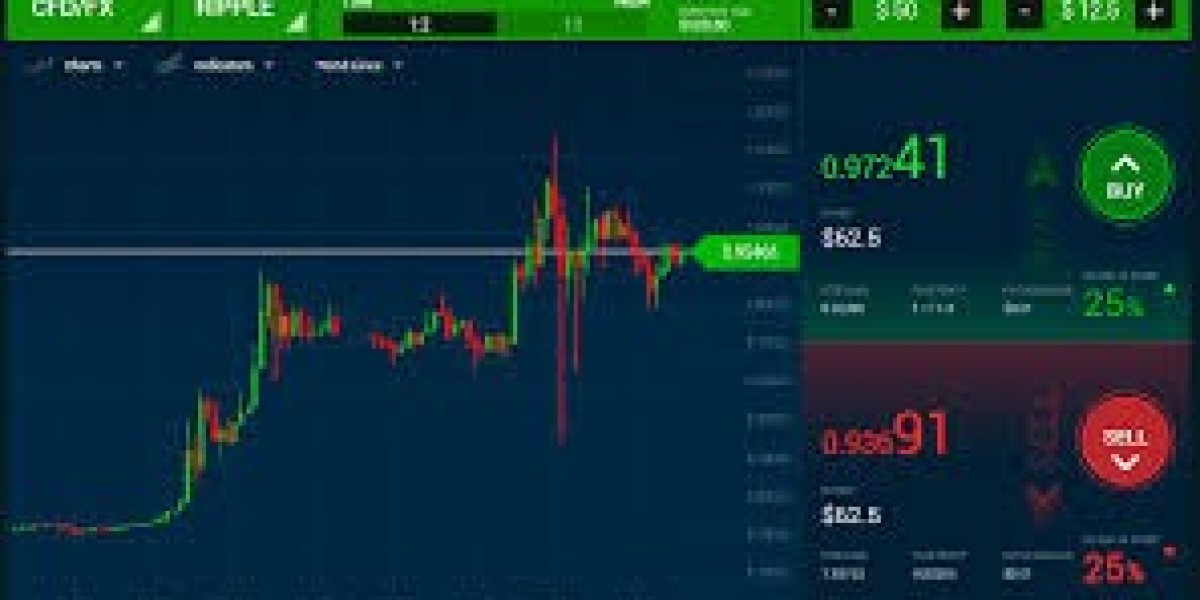Cryptocurrency has redefined how we think about money, investing, and even freedom. As Bitcoin and other digital assets become increasingly mainstream, more people than ever are diving into crypto trading. But at the center of this growing ecosystem lies one critical tool: crypto trading platforms.
Whether you're a beginner buying your first piece of Bitcoin or a seasoned trader scalping altcoin volatility, choosing the right platform is crucial. This blog will explore what crypto trading platforms are, how they work, and which ones might suit your needs best.
What Are Crypto Trading Platforms?
Crypto trading platforms are online marketplaces where users can buy, sell, and exchange cryptocurrencies. Similar to a stock exchange, these platforms facilitate the trading of digital assets like Bitcoin (BTC), Ethereum (ETH), and thousands of other tokens.
But unlike traditional exchanges, crypto platforms operate 24/7 and support a much broader range of assets and trading tools. They’ve become the foundation of the cryptocurrency ecosystem—whether for casual investment, professional trading, or decentralized finance (DeFi) participation.
Types of Crypto Trading Platforms
Not all crypto trading platforms are built the same. Here's a breakdown of the major types:
1. Centralized Exchanges (CEXs)
These are the most commonly used platforms. CEXs are operated by companies that manage user accounts and facilitate trades.
Popular examples:
Binance
Coinbase
Kraken
KuCoin
Bitfinex
Pros:
User-friendly interfaces
High liquidity
Advanced trading tools (margin, futures, staking)
Customer support
Cons:
Require identity verification (KYC)
Users don’t fully control their funds (custodial)
Potential target for hacks
2. Decentralized Exchanges (DEXs)
DEXs operate without a central authority. Trades occur directly between users using smart contracts.
Popular examples:
Uniswap
SushiSwap
PancakeSwap
dYdX
Curve Finance
Pros:
No KYC or account registration
Users control their assets (non-custodial)
Open access to thousands of tokens
Cons:
Lower liquidity compared to CEXs
Complex interface for beginners
Limited customer support
Features to Look for in Crypto Trading Platforms
With so many options available, how do you choose the right platform? Consider these key features:
1. Security
This should be your number one concern. Look for:
Two-factor authentication (2FA)
Cold storage for user funds
Insurance against breaches
Transparency of ownership and regulation
2. User Interface
A well-designed interface can make or break your trading experience. Beginners should prioritize platforms that offer intuitive layouts and educational resources.
3. Supported Assets
Not all platforms offer the same coins. If you're looking to trade lesser-known altcoins or DeFi tokens, you'll want a platform with a wide range of listings.
4. Fees
Fees vary greatly. Look for:
Trading fees (usually a percentage per trade)
Deposit/withdrawal fees
Spread (difference between buy and sell price)
Some platforms offer tiered fee structures based on your trading volume or loyalty programs.
5. Liquidity
High liquidity means you can buy or sell your crypto quickly at a fair price. CEXs generally offer higher liquidity than DEXs.
6. Advanced Tools
If you're a more experienced trader, you’ll want access to:
Technical charting
Margin trading
Futures and options
Stop-loss and limit orders
API integration
Top Crypto Trading Platforms in 2025
Let’s take a closer look at some of the most reputable crypto trading in the current market:
1. Binance
Overview: The largest CEX by volume. Offers a massive selection of coins, advanced trading tools, and staking features.
Best for: Advanced traders and those looking to explore multiple trading options.
Downside: Some users may find it overwhelming due to its complexity.
2. Coinbase
Overview: A beginner-friendly platform that’s fully regulated in the U.S. Known for its simple interface and educational tools.
Best for: New users and long-term investors.
Downside: Higher fees than some competitors.
3. Kraken
Overview: A highly secure and regulated exchange with a strong reputation. Offers margin trading and futures.
Best for: Users who value security and regulation.
Downside: Interface isn’t as sleek for casual users.
4. KuCoin
Overview: Offers a wide selection of altcoins, low fees, and features like trading bots and passive income tools.
Best for: Altcoin traders and intermediate users.
Downside: Not licensed in all countries.
5. Uniswap (DEX)
Overview: The most popular Ethereum-based DEX, supporting thousands of ERC-20 tokens.
Best for: DeFi users and those wanting full control of their assets.
Downside: Higher gas fees and no fiat support.
Pros and Cons of Crypto Trading Platforms
Pros:
Instant access to global markets
Wide range of digital assets
Advanced tools for maximizing profits
Opportunities for passive income (staking, liquidity pools)
Cons:
Risk of hacking or phishing scams
Volatility in prices can lead to losses
Regulatory risks, especially with cross-border trading
Complexity for beginners
Tips for Using Crypto Trading Platforms Wisely
Start Small: Begin with small amounts until you’re familiar with the platform.
Use Hardware Wallets: For long-term holdings, transfer funds to a cold wallet.
Avoid FOMO: Don't buy into hype—do your research.
Enable Security Settings: Use all available security features, including 2FA and withdrawal whitelist.
Keep Learning: The crypto space evolves fast. Stay informed through blogs, YouTube channels, and newsletters.
Final Thoughts
Crypto trading platforms are the bridge between the traditional financial world and the decentralized digital economy. Choosing the right platform can make all the difference—affecting not just your trading success but also the safety of your assets.
As the crypto space continues to mature, platforms are becoming more user-centric, secure, and versatile. Whether you're a first-time investor or a full-time trader, now is a great time to explore your options, build your strategy, and step confidently into the world of digital finance.
See more our website : visit here








